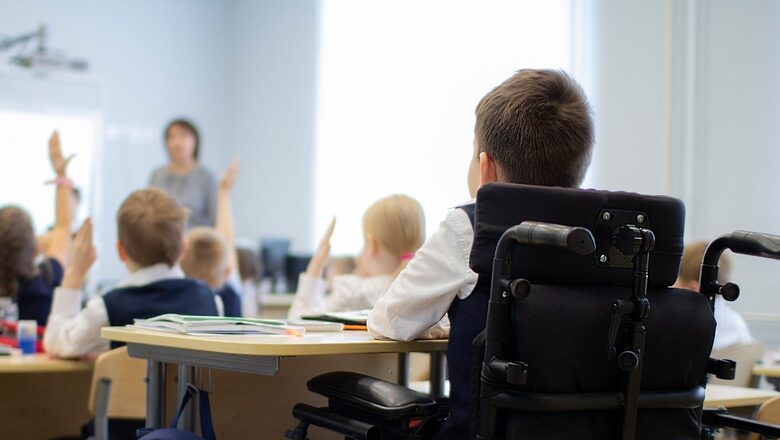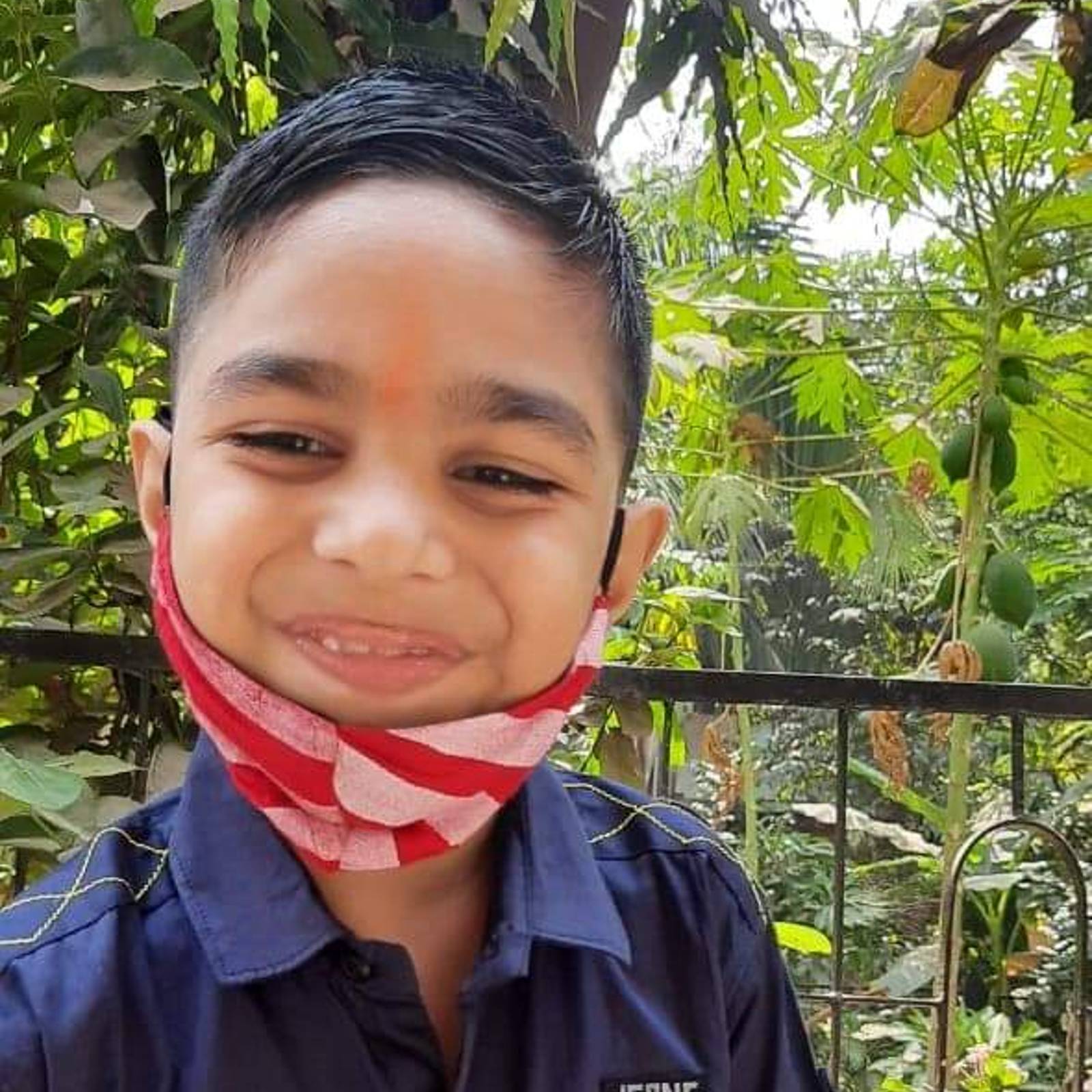
views
Akhilesh Tiwari, the father of 9-year-old Atharv, a child with Cerebral Palsy (CP), has been trying for the last five years to enroll his son in a mainstream school in Mumbai. Despite Akhilesh’s efforts, his son didn’t get enrolled in any primary mainstream school. While Atharv today should have been in Class 4, his mother tutors him at home.
When doctors suggested a mainstream school for Atharv’s education, his father claims to have first approached St. Joseph School, in Vikhroli, a government-aided institution. “It’s near our house and is considered to be a good institution. I urged the school principal Father Sachin Lopez multiple times to enroll Atharv but he did not agree and cited numerous reasons,” said Akhilesh.

The principal allegedly first asked the parents to provide a helper to accompany Atharv to school. “When my wife agreed to take up the responsibility, the school said that a helper will lead to other students ostracising Atharv. They then discouraged us from enrolling him in the school,” the father alleged.
When contacted the school principal, he claimed that the admission might be denied due to a lack of vacancies. “We can’t promise admission to any child, their parents should try every year,” He said. He further denied sharing data on the number of children with disabilities enrolled at his school.
Thousands of children with disabilities (CWDs), like Atharv, lose out on a chance to pursue mainstream education due to the poor implementation of the Right to Education (RTE) Act, 2009. Many CWDs are forced to stay away from mainstream education or choose “special schools” that are far from their convenience.
Under the RTE Act, 25 per cent of all the seats in private and government schools are reserved for economically disadvantaged children between the age of 6 and 14 years. Of the 25 per cent reserved seats, 3 per cent are reserved for children with disabilities, as per the Rights of Persons with Disabilities Act, 2016.
What does the data say?
In 2020-21, of the total number of children studying in Classes 1 to 8 (18,78,75490) across India, only 0.96 per cent of students (18,05,343) were CWDs, revealed U-DISE, a database of school education in India, maintained by the National Informatics Centre and the Ministry of Human Resource Development. Similarly, in 2019-20, only 1.2 per cent of CWDs (19,06498) were enrolled in schools across the country.
The total enrollment of CWDs in Classes 1 to 12 saw a decline of 3.55 per cent. In 2020-21, the number fell to 21.69 lakh when compared to 22.49 lakh in 2019-20.
Girls With Disabilities Have it Worse
The most disadvantaged even among CWDs are girl students with disabilities. There were only 7,72121 girl students with disabilities enrolled in Classes 1 to 8 in 2020-21 across the country, which is a mere 0.008 per cent of (90,3,80685), (able-bodied) girl students enrolled in schools. Meanwhile, among the boys, in 2020-21, a total of 97494805 abled-body boys were enrolled in the schools (from class 1-8) as compared to 10,33,222 boys with disabilities, which is 1.05 per cent.
Activists and experts claim that most private, government-aided and even government schools deny admissions to CWDs as the schools do not have basic accessibility infrastructure, including ramps, toilets, and special educators for CWDs in schools. They claim that the Covid-19-induced pandemic has made situations worse for CWDs as the number of enrollments of CWDs has decreased in schools across the country.
Only 25% of schools CWD-friendly
Across the country, only 25 per cent of schools, including private, government, government aides, and others, have CWD-friendly functional toilets, shows U-DISE data for 2020-21. As per the data, only 2.23 per cent of schools in Meghalaya has functional toilets in schools for CWDs. Further, only 48 per cent of schools have ramps with handrails for CWDs. At 12.93 per cent, Arunachal Pradesh has the lowest number of schools with ramps with handrails for CWDs.
Functional toilets for CWDs in schools in 2020-21
Speaking to News18, the National Commission for Protection of Child Rights (NCPCR), Chairperson, Priyank Kanoongo said, “Most states are not properly implementing the RTE Act. We have developed a Standard Operating Procedure (SoP) to implement the Act but most states do not follow it. Schools are reluctant to give admissions to CWDs even though the state government has to tighten its grip on schools.”
On August 2, NCPCR filed an affidavit in the Supreme Court regarding the status of poor implementation of RTE Acts in most states. Kanoongo added that the enrollment of CWDs is poor even in the national capital.
In 2019-20, around 86.9 per cent of the seats reserved for CWDs across private schools in Delhi are still lying vacant, reports suggest.
On June 4, Delhi government’s Directorate of Education (DoE) asked its officials to ensure all vacant seats were reserved for candidates under economically weaker sections (EWS), disadvantaged groups (DG), and CWDs categories, in the city’s private schools, are filled up in the next 10 days. The DoE said that if a school still denies admission, then a proposal for withdrawal of recognition of that school may be put up.
When News18 tried to reach out to the DoE, he denied commenting on the issue.
Parents need to be more aware
Advocate and educational activist Ashok Agarwal says several parents lack awareness about the 3 per cent reservation in private schools, under which any child with a disability cannot be denied admission.
“The part of the problem is that people, including authorities, assume that if a child has disabilities, then they should not be studying in mainstream schools but in a special school. Firstly, that notion has to change. Another issue is the lack of accessibility in schools. Even if a mainstream school gives admission to a child with disabilities, the basic facilities, including toilets, and teachers are so less, due to which the drop out is extremely high.
A 2019 UNESCO report claims that 12 per cent of children with disability have dropped out of school and 27 per cent of children with disability have never attended any educational institution. The report adds that out of 78.64 lakh children with disability in India, three-fourths of those aged five years don’t attend any educational institution.
How will NEP impact RTE?
Activists claim that the New Education Policy (NEP 2020) will worsen the condition of CWDs.
Stating that NEP which is pushing for distance learning and online classes will push back the CWDs. Ashok Agarwal says, “NEP will leave these children more neglected. NEP is pushing for more online education and privatization, leading to increased educational fee and coaching culture, which will only make education more difficult for Children with Disabilities. The NEP is only a ‘Jumla’ by the authorities.” Another activist also claimed that the government should implement the existing policies and then talk about new ones like NEP.
This story is produced as part of the Laadli Media Fellowship 2022
Read the Latest News and Breaking News here



















Comments
0 comment